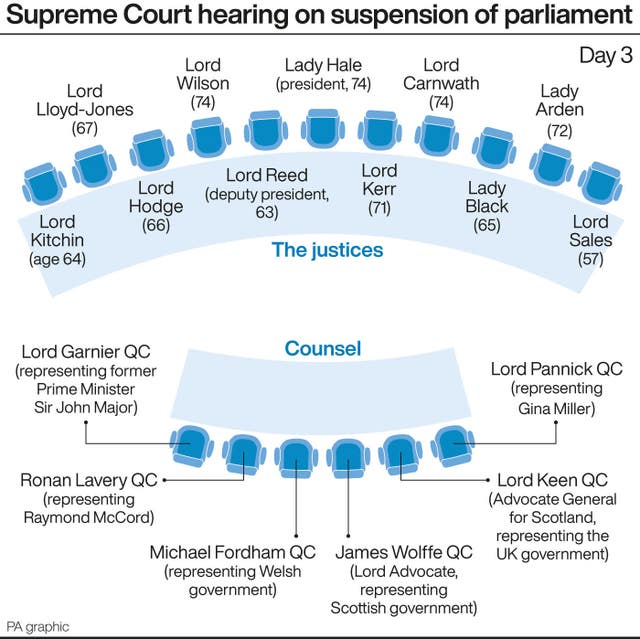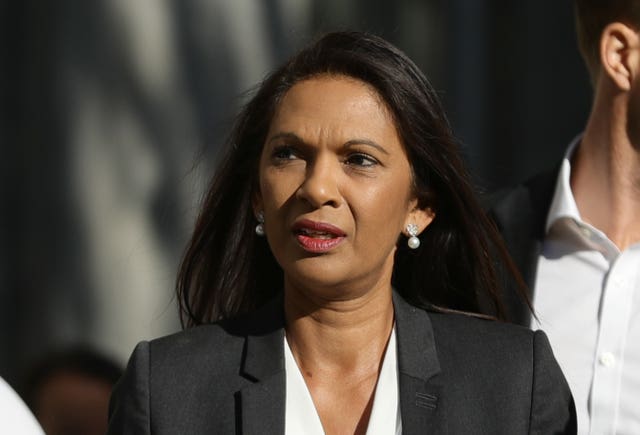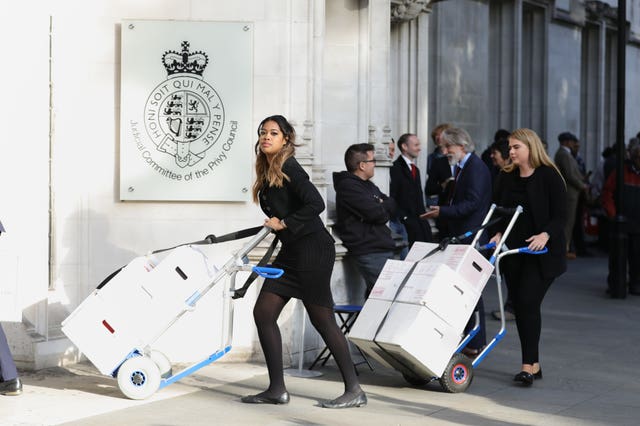
Former prime minister Sir John Major believes Boris Johnson’s prorogation decision was motivated by his “political interest” in closing down Parliament ahead of the UK’s exit from the EU.
Sir John is an intervener in an unprecedented case at the Supreme Court over the Prime Minister’s advice to the Queen to suspend Parliament for five weeks.
He is supporting an appeal brought by campaigner and businesswoman Gina Miller against an earlier ruling by the High Court in London that the prorogation was “purely political” and not a matter for the courts.

On Thursday, the third and final day of a historic hearing at the Supreme Court in London, Sir John’s QC Lord Garnier said the intervention was “nothing to do with the arguments for or against Brexit”.
In written submissions which were also provided to the court, Lord Garnier said the former prime minister is of the view the “inference was inescapable” that Mr Johnson’s decision was “motivated by his political interest in ensuring that there was no activity in Parliament during the period leading up to the EU Council summit on October 17 and 18”.
Lord Garnier, who served as solicitor general under David Cameron, added: “One of the central points of the present case – and the reason why these proceedings are necessary at all – is that the power of prorogation subverts the possibility of control by political means.

“Its effect is to deprive Parliament of a voice throughout the period of the prorogation.
“There is no possibility of political control except in the limited sense that a prime minister who exercises the power in a damaging way might face political consequences at some later date, when Parliament is permitted to reconvene.
“But where the effect of the prorogation is to prevent Parliament from discharging its role during a time-critical period, there is no possibility of meaningful political control of that decision until after the damage has been done.”
Lord Garnier said it remains “genuinely unclear” whether Mr Johnson disputes that he was motivated by political interest because no witness statements have been provided.
He added that the submissions made on the Prime Minister’s behalf at the High Court “studiously avoided committing to any clear position on the issue”.
The barrister said the Supreme Court is under no obligation to approach the case on the “artificially naive” basis that the documents submitted on Mr Johnson’s behalf should be “assumed to be entirely accurate and complete when even members of the Cabinet do not appear to believe them”.

In a witness statement prepared for the High Court hearing, Sir John said it was “utterly unacceptable” for the Government to “seek to bypass” Parliament because it does not agree with the proposed course of action on a certain policy.
The statement read: “I served in Parliament for over 20 years both as a backbench MP and as a Government minister at Cabinet and more junior levels.
“I was of course Prime Minister for nearly seven years and am very proud to have been in the Commons and a minister.
“I have huge admiration for our Parliament and am a keen supporter of its rights and duties.
“I cannot stand idly by and watch them set aside in this fashion.
“I appreciate that this is not the Government’s stated intention for proroguing Parliament, but for the reasons set out in this statement, the inescapable inference to be drawn is that the prorogation is to prevent Parliament from exercising its right to disagree with the Government and to legislate as it sees fit.”
The panel of 11 justices also heard submissions on behalf of the Welsh and Scottish governments and Northern Irish victims’ campaigner Raymond McCord.
The hearing is due to conclude on Thursday afternoon, but it is not known when the court is expected to give its ruling.


Comments: Our rules
We want our comments to be a lively and valuable part of our community - a place where readers can debate and engage with the most important local issues. The ability to comment on our stories is a privilege, not a right, however, and that privilege may be withdrawn if it is abused or misused.
Please report any comments that break our rules.
Read the rules hereComments are closed on this article